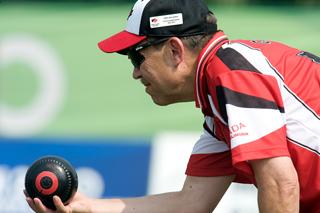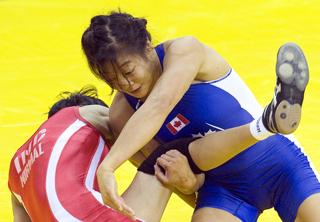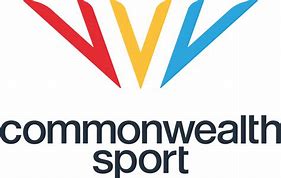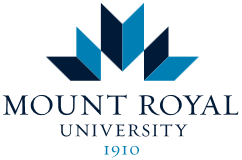Taking Games Preparation to Another Level


Team Canada’s experiences with the recent Delhi Commonwealth Games will have a long-lasting impact on how future Canadian teams prepare for major international multi-sport competitions.
That’s one of the core conclusions to come out of a post-Games analysis led by Commonwealth Games Canada’s (CGC) Director of Sport, Scott Stevenson.
“From the get-go, Delhi presented us with many unique challenges,” says Stevenson. “If we were going to succeed in creating optimal conditions for athlete performance, then we had no choice but to think more thoroughly and creatively as we built and executed our plans. Based on that experience, I don’t think the way we prepare for major Games will ever be the same.”
Stevenson points to three areas in particular – partnerships, consolidated planning, and communications – that proved invaluable in helping Team Canada deal with countless Delhi-based snags and stumbles and to weather the crisis that threatened to derail the Games.
The focus on partnerships was a natural consequence of Stevenson’s philosophical approach to preparing for India. “Given all the complexities, it only made sense to reach out to willing partners already engaged in the high performance sport system to leverage our respective resources, knowledge and expertise.”
Instead of building its own sport technical capability, for example, CGC collaborated with Own the Podium to bring on Dr. Jon Kolb as a member of Team Canada’s Leadership Team.
“Jon and his crew were a phenomenal asset to the athletes, coaches, and to our team as a whole,” notes Stevenson. “They had established relationships with the national sport organizations (NSO) and a wealth of relevant, firsthand experience to bring to the table.”
The OTP partnership also facilitated the engagement of Dr. Trent Stellingwerff, a world-class nutritionist, whose expertise, on-site interactions and team member monitoring proved invaluable at the Delhi Games.
Stevenson maintains that a priority for future Games will be to further expand the partnerships that proved so valuable before, during and after Delhi 2010. Key relationships included:
- close collaboration with each of the NSOs on a customized approach that aimed to maximize the experience for each and every athlete, coach and support staff;
- Sport Canada, which served as the primary liaison with a number of federal departments and agencies including the Department of Foreign Affairs, the Canadian High Commission in Delhi, and the RCMP, all of which were instrumental in designing and delivering Team Canada’s plan;
- the Commonwealth Games Federation, a regular and reliable source of information that strengthened the impact of team interventions with the host organizing committee. Also a strong advocate for better results management, the Federation engaged interns from CGC’s International Development through Sport (IDS) program to ensure reliable data entry during the Delhi 2010 Games;
- Coaches of Canada in the development of a coaching standards policy and in providing on-site support for Canadian coaches; and
- the Coaching Association of Canada in the creation and delivery of a Commonwealth Games Women in Coaching Bursary.
Internationally, widespread concerns over missteps and miscommunication by the Delhi 2010 Organizing Committee motivated several Commonwealth Games Associations (CGA), including Canada, to exchange intelligence and information in the years leading up to the Games. The alliance proved highly effective during the crisis period when urgent action was required to address serious problems with some of the functional areas and substandard accommodations in the Athletes Village.
Partnerships were a vital component of the overall approach to Team Canada’s planning for the Delhi Games. Equally pivotal was the notion of “contingency” – ensuring there was a back-up plan for literally every aspect of the operation.
“In some cases, we identified a back-up to the back-up,” jokes Stevenson. “But, in reality, we had a Plan B for everything, including back-ups for every member of the Mission Staff in case people started going down with Delhi belly.”
For the first time, CGC embedded staff members within the Mission Team to ensure much-needed continuity in critical areas such as operations and communications. The unprecedented emphasis on detailed planning made it necessary to travel to Delhi for frequent site visits by several members of the Mission Staff, including the RCMP security team. After each visit, CGC hosted face-to-face debriefing sessions for NSOs and Mission Staff to ensure a steady flow of timely, accurate information.
“The closer we got to Games time, the more we had to deal with concerns about the state of readiness in Delhi,” adds Martha Deacon, Chef de Mission for Team Canada Delhi 2010. “There was so much speculation in the media we needed to take proactive steps to ensure our partners had reliable information that they could then use to make their own decisions and develop their own plans.”
The steady, two-way flow of communication between NSOs and the CGC built a foundation of comfort and trust that would prove invaluable during the crisis period prior to the Games. As international concerns escalated over the condition of venues and accommodations, CGC provided its key partners with regular updates from Delhi, where Stevenson was leading the Advance Team. Daily conference calls with NSOs and Canadian media, for example, gave them direct access to firsthand information and provided an opportunity for questions and clarifications.
“NSOs were being bombarded with questions and concerns from their own athletes, coaches, and their family members,” Stevenson confirms. “We recognized they would need regular, real-time access to the latest information so they could quickly respond to their own constituents with consistency and with confidence.”
Regular information updates to NSO partners also meant that the Games Orientation weekend could focus more on contingency planning, crisis management, and team building. “We spent much of that weekend working through potential scenarios, confirming who would do what and when,” says Deacon. “As it turns out, that training was critical to our success in weathering the pre-Games storm and to minimizing distractions for our athletes and coaches.”
These and many other lessons learned from the Delhi Games are now being integrated into planning for both the Commonwealth Youth Games this September in Isle of Man and the 2014 Glasgow Commonwealth Games.
“What we’ve learned from our own experiences and from our partners over the last couple of years will help take our planning to an entirely different level,” predicts Stevenson. “It all fits with our primary goal of ensuring that the Commonwealth Games generate the best possible value for our partners and for the Canadian sport system as a whole.”











